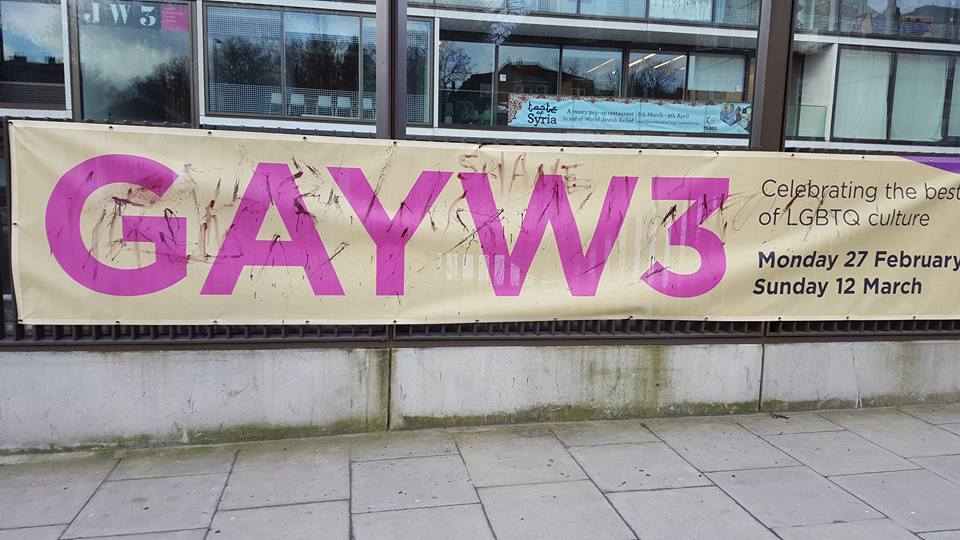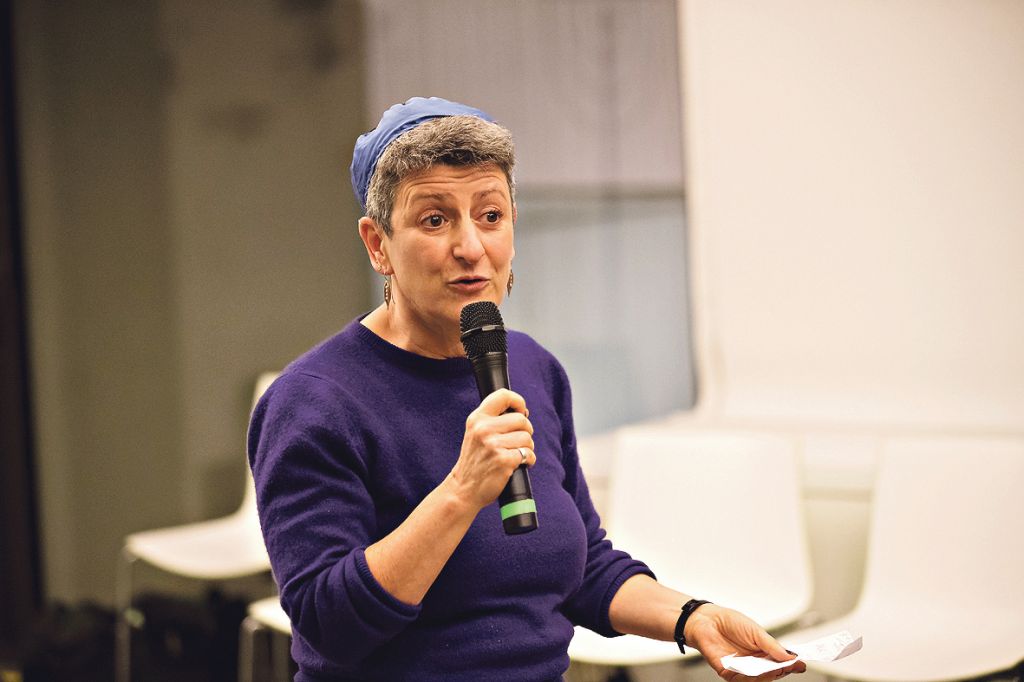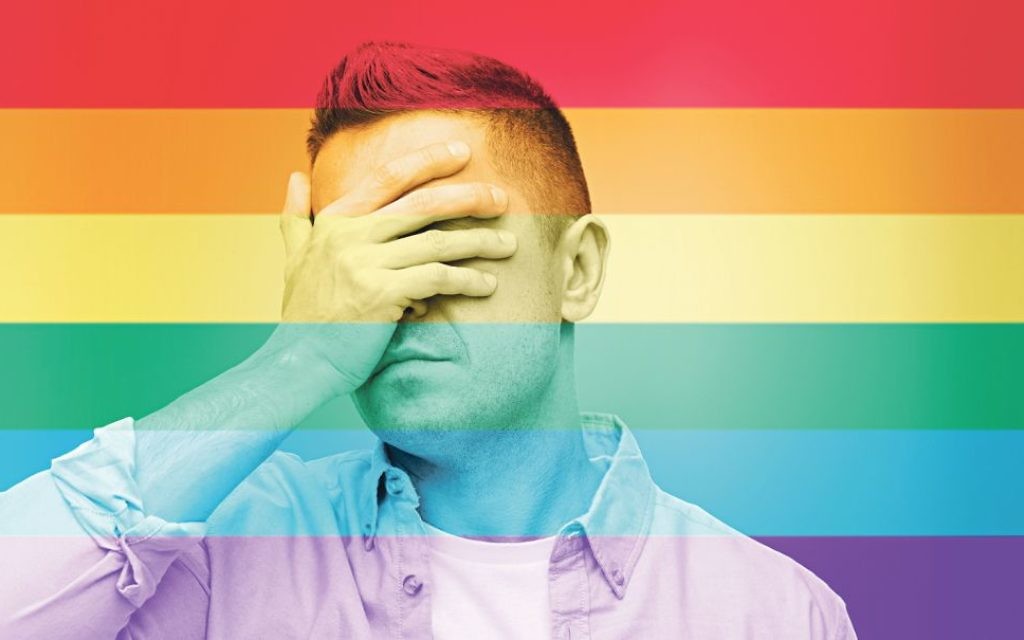Trauma from conversion therapy: ‘In my Jewish community, being gay isn’t an option’
In parts of strictly-Orthodox Jewish Britain, conversion therapy – discredited as damaging and ineffective – is still being offered to those who confide in rabbis about their feelings. Clare Hedwat hears some traumatic stories
Twenty-five rabbis from Hendon, Golders Green and Edgware told their congregations late last year to boycott the JW3 community centre, claiming its programmes “promote a way of life which is in total contradiction to Orthodox Judaism and halachah”. JW3’s sin? Holding a gay-themed week of events.
We live in enlightened times, yet homosexuality often surfaces in the community as a divisive issue. A session at December’s Limmud Festival featured panelists who spoke of their trauma as a result of gay conversion therapy. Routinely used in the 1960s to ‘cure’ homosexuality, the NHS and main UK psychological bodies have warned of its ineffective and harmful nature.
A young man reported that only two months ago, his mother was advised that she should seek a conversion therapist for her son. “Coming out can be really tough — the expectations the people you love have for you disappear overnight, made harder when the Jewish community isn’t there to support you,” Elliot Jebreel, the panel’s moderator explained. “Things do get better, I just wish the Modern Orthodox Jewish community played a bigger role in that.”
Get The Jewish News Daily Edition by email and never miss our top stories Free Sign Up
The pattern is strikingly similar. Often while someone is becoming more observant and confides in a rabbi about struggles with same-sex attraction, gay conversion therapy is suggested. Though leaders from mainstream Orthodoxy have taken great lengths to distance themselves publicly, rabbis from the fringes of Orthodoxy community have been known to recommend the treatment. One Jewish man explained that, as a student, he sought to sublimate sexual feelings with religious immersion. When a rabbi proposed a ‘solution’ to homosexuality, he “felt elated that I could finally rid myself of this”.

He underwent six years of conversion therapy. The psychotherapist, who also had rabbinic ordination, claimed that, although he could not ‘make him straight’, with treatment and prayer, opposite-sex attraction could be cultivated. Other men are “in the same position and married with children.”
In time, the sessions became focused on “getting the deed done”. “This not only proved profoundly damaging to me,” he explained, “but to the women I was trying to have sex with. It meant we all suffered.”
A highly articulate Jewish lesbian in her 20s testifies to a similar experience. It was during a Jewish outreach trip to Israel that gay reparative treatment was recommended by a UK-based rabbi. In the absence of a support system, gay conversion therapy gave her “a sense of hope”, she said. “You need something to grab on to, otherwise you’re suicidal.”
You need something to grab on to, otherwise you’re suicidal
A Jerusalem therapist gave her “reassurance that I could be a straight person… if you know you’re gay, that’s a good thing, because you know what your tikkun [fixing] is.”
Although set on getting through the therapy, she became aware that “I wasn’t becoming straight, I was becoming asexual.” A further stage sought to uncover childhood trauma: “My mum felt terrible about it. She worried it was because she worked and wasn’t nurturing enough.”
Efforts have been made by congregations to present the typical shul-goer as no longer part of a straight couple with children. One interviewee said her experience of New North London was as a “utopia … where they see you as human”.
A senior United Synagogue rabbi described increased sensitivity as part of an appreciation of the need to create welcoming synagogues, despite the impossibility of endorsing certain ‘life choices’. In general, work remains to create truly inclusive congregations. As one interviewee put it: “It’s not about rabbis being popular with their congregants. What’s needed is a step change in how we understand diversity.”
It’s not about rabbis being popular with their congregants. What’s needed is a step change in how we understand diversity.
The development of organisations such as KeshetUK have played a pivotal role in opening channels between LGBT Jews and the community. In 2017, for example, KeshetUK supported dialogue between parents of LGBT+ young adults, and United Synagogue rabbis.
More engagement has taken place between Keshet-UK, university chaplaincy and outreach organisations. KeshetUK is clear: “There is no evidence that people can change their sexual orientation or gender identity; conversion therapy is dangerous and damaging with no place in the Jewish community or the world in general.
“KeshetUK works with Jewish communities to tackle the discrimination or prejudice LGBT+ people can face, to ensure that no one is exposed to such drastic and harmful measures.”

Rabbi Laura Janner-Klausner, Senior Rabbi to Reform Judaism, commented: “Reform Judaism is committed to welcoming and valuing difference. This kind of ‘therapy’ is inhumane and repulsive, a violent attack on the very essence of a possibly vulnerable individual created b’tzelem Elohim, in God’s image.”
Yet coming out is doubly difficult in Anglo Jewry: not only for the gay person, but for the parents, who must also ‘come out’, effectively “game over for them and their fantasy of what sort of life their child will have”.
The conclusion? “I want parents reading this to feel it’s alright if your kids are gay. I went to therapy, because in my part of the Jewish community, being gay wasn’t an option.”

Thank you for helping to make Jewish News the leading source of news and opinion for the UK Jewish community. Today we're asking for your invaluable help to continue putting our community first in everything we do.
For as little as £5 a month you can help sustain the vital work we do in celebrating and standing up for Jewish life in Britain.
Jewish News holds our community together and keeps us connected. Like a synagogue, it’s where people turn to feel part of something bigger. It also proudly shows the rest of Britain the vibrancy and rich culture of modern Jewish life.
You can make a quick and easy one-off or monthly contribution of £5, £10, £20 or any other sum you’re comfortable with.
100% of your donation will help us continue celebrating our community, in all its dynamic diversity...
Engaging
Being a community platform means so much more than producing a newspaper and website. One of our proudest roles is media partnering with our invaluable charities to amplify the outstanding work they do to help us all.
Celebrating
There’s no shortage of oys in the world but Jewish News takes every opportunity to celebrate the joys too, through projects like Night of Heroes, 40 Under 40 and other compelling countdowns that make the community kvell with pride.
Pioneering
In the first collaboration between media outlets from different faiths, Jewish News worked with British Muslim TV and Church Times to produce a list of young activists leading the way on interfaith understanding.
Campaigning
Royal Mail issued a stamp honouring Holocaust hero Sir Nicholas Winton after a Jewish News campaign attracted more than 100,000 backers. Jewish Newsalso produces special editions of the paper highlighting pressing issues including mental health and Holocaust remembrance.
Easy access
In an age when news is readily accessible, Jewish News provides high-quality content free online and offline, removing any financial barriers to connecting people.
Voice of our community to wider society
The Jewish News team regularly appears on TV, radio and on the pages of the national press to comment on stories about the Jewish community. Easy access to the paper on the streets of London also means Jewish News provides an invaluable window into the community for the country at large.
We hope you agree all this is worth preserving.
-
By Brigit Grant
-
By Laurent Vaughan - Senior Associate (Bishop & Sewell Solicitors)
-
By Laurent Vaughan - Senior Associate (Bishop & Sewell Solicitors)
-
By Laurent Vaughan - Senior Associate (Bishop & Sewell Solicitors)
-
By Laurent Vaughan - Senior Associate (Bishop & Sewell Solicitors)






















